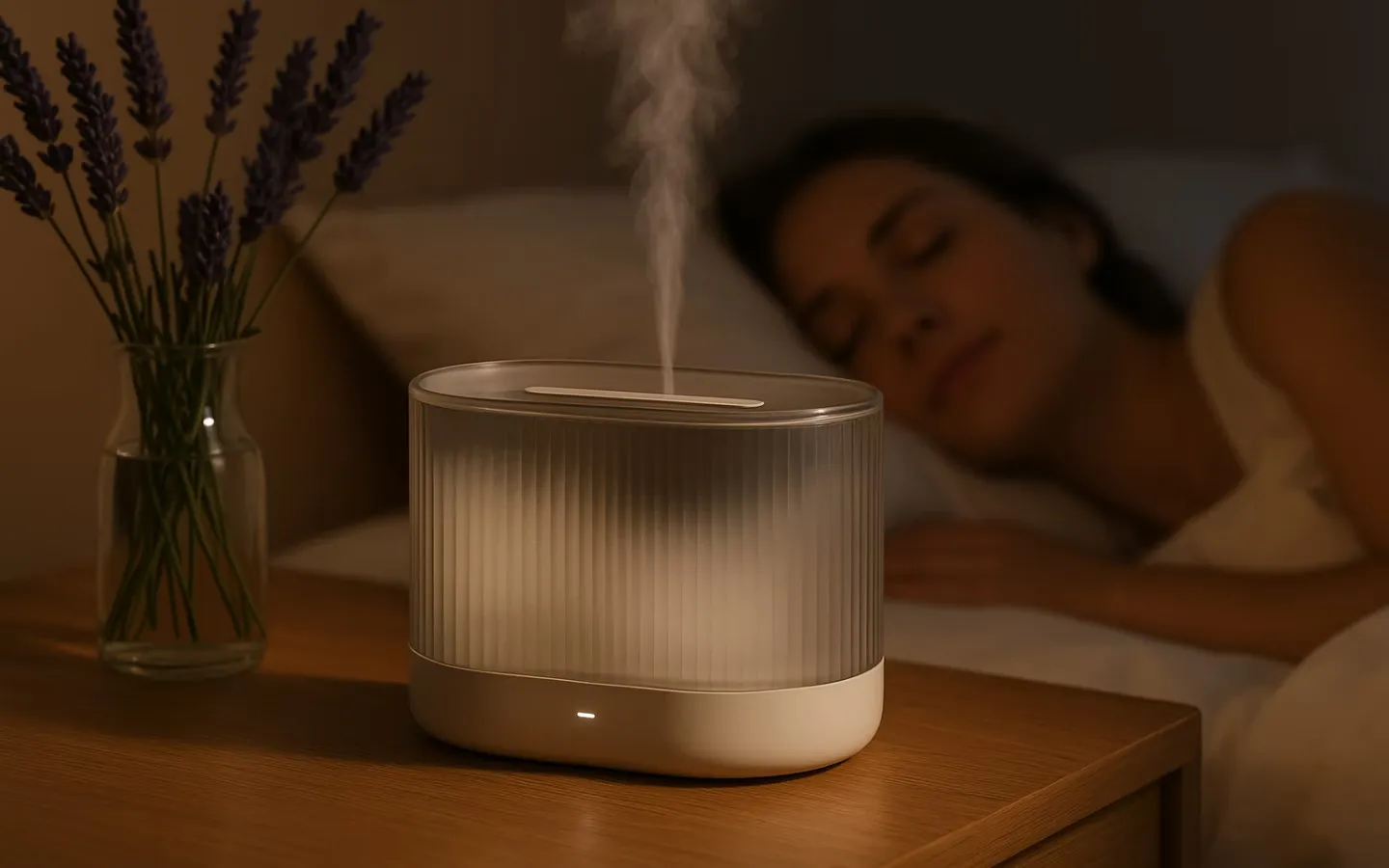August 6, 2025
Good Sleep Hygiene: Small Habits for Better Rest
If you’re trying to improve your sleep quality, one of the best places to start is with your sleep hygiene.
The phrase sleep hygiene might sound a bit clinical, but it’s really just talking about the habits and small choices you make that decide how easily you fall asleep and stay asleep. Things like when you go to bed, how you wind down at night, and even what time you drink or eat all play a role here.
The truth is, we’re all used to following a certain pace in our lives, and when something disrupts this normal pace, our sleep usually suffers as a result. The good news? A few simple changes can make your nights more predictable and mornings less of a fight.
Here’s what sleep hygiene really means and how you can make it work for you.
What is Sleep Hygiene?
By definition, sleep hygiene is the set of daily habits and environmental factors that influence how well you sleep. It includes your sleep schedule, bedtime routines, diet, stress levels, and the setup of your sleep environment.
Good sleep hygiene helps your body maintain a stable internal clock, making it easier to fall asleep, stay asleep, and wake up feeling rested. Poor sleep hygiene does the opposite, disrupting natural rhythms and leaving you more prone to restless nights and daytime fatigue.
So, how can you tell if your sleep hygiene is actually working for you or secretly stealing your sleep?

Is Your Sleep Hygiene Good Enough? (How To Know)
Sometimes you just know your sleep is off, especially if you’ve moved to a new place or changed up your bedroom and things are simply not the same. In situations like these, the change in your sleep quality is often just temporary and goes back to normal after a few days.
But If you often wake up feeling groggy even after spending enough time in bed, or struggle to fall asleep and wake up at inconsistent times, those can be signs your habits are interfering with healthy sleep patterns. Other common signs include needing large amounts of caffeine to get through the day, feeling easily irritable or distracted, or dozing off during low-activity moments like meetings or watching TV.
The key is to pay attention to patterns over time, not just how you felt after an occasional bad night.
Good sleep hygiene supports a consistent internal clock, which makes sleep feel more predictable and natural. When your bedtime and wake-up time change drastically from day to day, or when late meals, alcohol, or stimulating activities crowd your evenings, it can throw off that clock and make quality sleep much harder to come by.
Another easy way to check your sleep hygiene is to ask:
Do I feel alert and functional most days without relying on naps or energy drinks?
If the answer is often “no,” it’s probably worth looking at your habits and environment.
5 Sleep Hygiene Tips To Improve Your Sleep Starting Tonight
The good and the bad thing about sleep hygiene is that even the small changes can make the biggest difference.
1. Keep a consistent bedtime and wake time
Choose a sleep schedule that works for your life and try to stick to it, even on weekends. A predictable schedule “strengthens” your body’s internal clock, making it easier to fall asleep and wake up without too much trouble.
2. Find a simple wind-down routine that matches your sensitivity
A short routine at the same time each night helps your body shift out of “day mode.” This might be dimming the lights, reading a book, stretching, or listening to calming audio. Keep it consistent so your brain learns the cue.
3. Protect your sleep environment
The idea is your bedroom should support sleep, not compete with it.
Keep the space cool, dark, and quiet. Try to keep the temperature between 16 and 19°C (60 to 67°F) for better, more stable sleep If possible, remove any distractions or work-related things so your brain associates the room only with rest.
If you don’t have the luxury of having a dedicated room for sleep, and you work in the same room where your bed is, them make sure to keep it clean and well-ventilated. We explained how this improves your sleep quality in our post about optimal bedroom environment for sleep.
4. Use caffeine, alcohol, and heavy meals carefully
Caffeine can remain active in your system for hours. Alcohol is similar, as well as eating large meals before sleeping which can disrupt deeper stages of sleep. Stop caffeine intake by early afternoon and finish eating or drinking alcohol several hours before bed.
5. Calm the mind before lying down
If stress tends to keep you up at night, add a technique to your wind-down time that helps you decompress. This can be journaling, light stretching or yoga, or slow breathing can all help. Tools like Kimba can also make this easier by nudging your nervous system into a calmer state through a personal aromatherapy for sleep.
[CTA_INSERT]
How Kimba Makes Sleep Hygiene More Reliable
Sometimes, despite your best habits, sleep can remain elusive. Often this happens because the nervous system itself stays on alert, making it difficult to fully unwind.
Kimba’s scent therapy provides a gentle, effective way to calm your nervous system. Unlike traditional diffusers, Kimba’s scent delivery is based on real-time biometric feedback from wearables. When your body shows signs of stress, Kimba automatically releases calming scents, helping your nervous system shift from alertness to relaxation.
Because Kimba works with the limbic system, it can make it easier to follow the sleep hygiene habits you’re trying to build. A wind-down routine feels more natural when your body is actually relaxing. Bedtime becomes more predictable when you’re not fighting stress or racing thoughts.
Over time, the system helps reinforce the same patterns that good sleep hygiene is built on, so you don’t have to rely on sheer willpower to get the rest you need.

Importance of Sleep for Long-Term Health
Good sleep hygiene isn’t just about feeling better tomorrow—it affects your health for years to come.
Chronic sleep problems increase the risk of conditions like cardiovascular disease, type 2 diabetes, obesity, and depression. Even moderate sleep disruption can weaken the immune system functionality, reduce your ability to concentrate, and make it harder to regulate emotions and appetite.
By building consistent habits, you give your body and brain the stability they need to recover each night. Over time, this can improve energy levels, mental clarity, and resilience to stress. It also makes it easier to maintain a healthy metabolism and protect long-term cardiovascular and immune function.
The earlier you address your sleep hygiene, the more you can protect your health from the cumulative effects of poor sleep. And as smarter, more personalized tools like Kimba become available, it’s becoming easier to maintain those habits without relying solely on willpower.
Join our newsletter to get early access and get notified when Kimba becomes available!


Continue reading

How High Training Load Can Disrupt Sleep Quality

The Link Between Poor Sleep and Muscle Recovery


